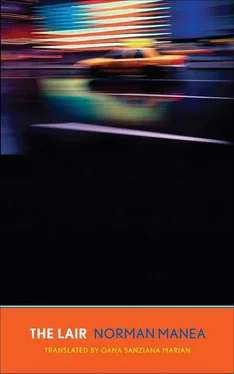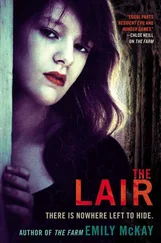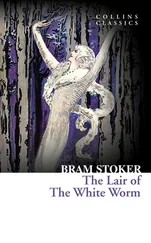She threw off her sandals, her pants, her small, thin underwear, no bigger than a rusted leaf. Dried breasts, the skin of her belly purplish, old thighs, the burnt lips of her sex under the puff of white, curly hair. She takes your palm in her narrow, long, wrinkled palm. She folds it into a fist, which she pushes into her center, moaning. Her eyelashes tremble, just like her voice. A short cry, like an owl.
He opens the green bottle and pours into the glass. The clink of the past. The raspberries, the cherries, the wine. She places the cherry on the lips of the dying man. She pushes it delicately into his mouth. Deeper and deeper. Bitter, old fingers.
“What was your youth like,” she asks. “You started late, didn’t you?”
For a moment, she remains lost in the green of the great trees. A burned look in her eyes.
“Oh, yes, me, too. Late, much too late. I regret it, yes.” The lips lick, the teeth bite, the tongue caresses. The dying man pulled inside, into the deep, his gaze hungry, his body thin, senile, an exhausted moan, a scream. Hunger and satiety, copulation with death.
Old phantasms. From time to time, he raises his gaze toward the small blue screen: the chess player wipes his brow and bald head with his wide and hairy hand. There’s no visible adversary, just the board with green and red pieces. The red team and the green team. The king, the queen, the knights, the bishops, rooks, and pawns.
The bald hussar with the black moustache holds the red pieces. He touches the crown of the queen with his index finger, stops thoughtfully, gazing amazed at the battlefield. The kingdoms are no longer black and white, but colored, as the hypercolor era demands. He raises his hand, brings it to his brow, scratches his baldness, tousles his eyebrows, first one, then the other. The right hand holds a brightly labeled Coca-Cola can. Peter brightens, as if responding by a divine sign.
Gora smiles, also awake. The astringent liquor pours into the tall and narrow glass. Frothy, cold, fresh, an elixir. Salvation.
He sips once more. Drink your salvation! Salvation. It preserves memory, fortifies the present, defies the future, age and the obituary.
On the table, the folder. At the edge of the table, the gloves from the past.
Pale, unshaven, sleepless, Professor Peter Ga  par — the stalked, in fact, the plaintiff — seems ready to accept the role of the guilty party. His gaze, his tone, the questions with which he opens the newest meeting all confirm the change. The discussion is unfolding differently from the preceding ones. Peter looks tired and slow, defeated by the guilt that he seems ready to admit, resentfully and out of sheer weariness. But after a few minutes, the scene changes: he puts his large hands on the table, next to the large hands of the policeman. He raises his hands. The index of the right hand points to the two volumes on the table.
par — the stalked, in fact, the plaintiff — seems ready to accept the role of the guilty party. His gaze, his tone, the questions with which he opens the newest meeting all confirm the change. The discussion is unfolding differently from the preceding ones. Peter looks tired and slow, defeated by the guilt that he seems ready to admit, resentfully and out of sheer weariness. But after a few minutes, the scene changes: he puts his large hands on the table, next to the large hands of the policeman. He raises his hands. The index of the right hand points to the two volumes on the table.
He announces in a low voice, “I found the quotation and the author.”
On the table, a book with a hash-marked, colorful cover. Typed in three steps, with golden letters: fic-CIO-nes. Next to it, another book. A shiny, black-and-white cover. Labyrinths, Selected Stories & Other Writings by Jorge Luis Borges.
Patrick writes. He doesn’t raise his eyes, bent over the spiral notebook. He pulls it out of the large, old bag made of cankered leather only for unusual circumstances. This time, he is writing. He measures up the suspect disguised as plaintiff, then begins, surprisingly, to write.
He transcribes the name of the publishing house, the year, while holding the book in his left hand. He takes a sheet of paper off the table. He tears it in half and puts one half in each book as a bookmark to the right of the text Death and the Compass. Page 129 in the first book, page 76 in the second.
“Argentine, you say?”
“Yes, a great Argentine writer. Born in 1899 in Buenos Aires. Into a family of Spanish, British, and vaguely Judeo-Portuguese origin.”
“Dead, then.”
“He postponed his death in the hope that he’d receive the Nobel Prize. He was stretching the compass as far as possible, but death found him, finally, at eighty-seven years old. Old and blind.”
“Did he receive the prize?”
“No. Those awards are a lottery. The Great Prize so much the more so. He had the chance, but there appeared attacks in the press that he was a Fascist.”
“Was he?”
“Nonsense, he couldn’t have been a Fascist.”
“But the Old Man alchemist might have been?”
“You can’t compare the two. Even though Dima was fascinated by Borges. Just like Palade. Maybe the fanatic who is honoring me with the threat letter, too. Neither Borges nor Palade were Fascists. The case of Dima is more complicated, as I explain in the review. Anyway, he wasn’t a standard Fascist.”
“Meaning?”
Peter doesn’t answer, and Patrick stops writing. He gives the suspect a hostile look, the same as when he’d first appeared, very bristly and determined. The tangled cultural traps increase suspicion. Wearisome digressions, that’s what could be read in Patrick’s gaze. He rifles through the pages, retains a line from here and there, soured by the opacity of the sentences.
“A police story?”
“We could consider it a police story. The hero is a detective. The heroine is Death. A logician who works with a compass and a square.”
Annoyed, Patrick seems ready to draw his gun, to escape the pretender’s oblique language.
“Lonrot. Scharlach. What are these names?”
“I don’t know. Nordic names. Names from a story.”
“And the quotation? Where’s the quotation?”
“Here, page 141, The next time I kill you,’ said Scharlach, ‘I promise you the labyrinth made of a single straight line which is invisible and everlasting.’ He stepped back a few paces. Then, very carefully, he fired. In the other volume, on page 87, The next time I kill you,’ replied Scharlach, ‘I promise you the labyrinth, consisting of a single line which is invisible and increasing.’ He moved back a few steps. Then, very carefully, he fired. My assassin used the first book. Published in New York, by Grove Press. Only he cut the article in front of the subject. Next time, instead of the next time. Your colleague Trooper was right.”
“Trooper? Which Trooper?”
“Mr. Jim Smith, from the state police. From the state troopers. He was saying that it should say the next time, so then the sender could be foreign. He sent the postcard to the investigations lab in Washington. For print analysis. Are there any results yet?”
“I don’t think so. It takes time. The lab is very busy.”
“Naturally. In the land of freedom, crime is a form of freedom. It doesn’t matter if my assassin uses proper grammar.”
“Your assassin?”
“The one who calls himself my assassin. The foreigner.”
“The foreigner?”
“That’s what Jim Smith said. It should have been the next time and / will kill you.”
Patrick is smiling. The state police officer doesn’t inspire any more trust than the professor he’s investigating.
“There are Americans of generations and generations who don’t write correctly.”
He looks at the foreigner in front of him once again, intensely.
“May I take these books? In fact, just the first, the one from Grove Press.”
“Of course.”
“Okay, I will read the story. I don’t think I’ll find anything, outside of that quotation. Is there anything else in the text that we should pay attention to?”
“The festival of masks.”
“And what’s that, now?”
Читать дальше

 par — the stalked, in fact, the plaintiff — seems ready to accept the role of the guilty party. His gaze, his tone, the questions with which he opens the newest meeting all confirm the change. The discussion is unfolding differently from the preceding ones. Peter looks tired and slow, defeated by the guilt that he seems ready to admit, resentfully and out of sheer weariness. But after a few minutes, the scene changes: he puts his large hands on the table, next to the large hands of the policeman. He raises his hands. The index of the right hand points to the two volumes on the table.
par — the stalked, in fact, the plaintiff — seems ready to accept the role of the guilty party. His gaze, his tone, the questions with which he opens the newest meeting all confirm the change. The discussion is unfolding differently from the preceding ones. Peter looks tired and slow, defeated by the guilt that he seems ready to admit, resentfully and out of sheer weariness. But after a few minutes, the scene changes: he puts his large hands on the table, next to the large hands of the policeman. He raises his hands. The index of the right hand points to the two volumes on the table.










